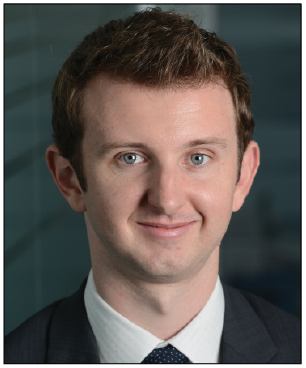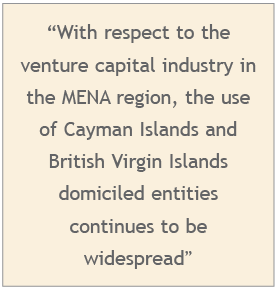 By Tom Cochrane, Walkers
By Tom Cochrane, Walkers
The recent announcement of Uber Technologies Inc’s acquisition of its Middle Eastern based competitor, Careem, in a cash and stock transaction worth US$3.1 billion, has renewed the spotlight on the burgeoning venture capital market in the Middle East and North Africa (MENA) region. In doing so, the continued popularity and benefits of using offshore vehicles to facilitate and implement venture capital investments has also been highlighted.
The Uber-Careem transaction, which is thought to be the largest-ever technology industry transaction in the MENA region, comes less than two years after the announcement of Amazon.com, Inc’s acquisition of Souq.com, an e-commerce marketplace headquartered in Dubai, in a transaction estimated to be worth approximately US$650 million.
These two transactions are high-profile examples of what is occurring more and more frequently throughout the MENA region: a greater emphasis on developing and promoting local and regional businesses (particularly in the technology space), and a more committed and sophisticated regional venture capital industry for raising the funds needed to effect such development and promotion.
With respect to the venture capital industry in the MENA region, the use of Cayman Islands and British Virgin Islands domiciled entities continues to be widespread. In terms of an investment vehicle through which to accept contributions from investors, the offshore “corporate model” (typically involving a Cayman Islands or British Virgin Islands company in which investors are admitted as shareholders) and the Cayman Islands “LP/GP” model (involving a Cayman Islands exempted limited partnership, in which investors are admitted as limited partners, and a separate general partner entity, typically a Cayman Islands exempted company with limited liability) continue to be the most commonly used structures.
The reasons for using a Cayman Islands based structure in a venture capital context include certain benefits reflecting the Cayman Islands as a jurisdiction more broadly, such as its familiarity to regional investors, its tax neutrality, the high levels of confidentiality which apply in the Cayman Islands, the flexibility of its laws, its political stability and well-regarded judicial system, and the high calibre of service providers, in both the public and private sectors, in the Cayman Islands.

In addition, the flexibility of the LP/GP structure more specifically (for example, the ability to easily and effectively call for and accept contributions from investors on a periodic basis, as and when appropriate investment opportunities are identified) is highly appealing to both venture capital investors and fund managers. Furthermore, the ability for investors to be excluded or excused from certain investments is a particular drawcard for investors based in the MENA region who may, for example, be limited to investing only in strictly Shariah compliant investments and who would need to be formally excused from investments which are not Shariah compliant.
Beneath any investor-facing structure which is utilised in a venture capital context, it is typical to have special purpose vehicles (SPVs) set up for the purpose of making each relevant investment. Such SPVs are typically set up as corporate entities domiciled in the Cayman Islands or the British Virgin Islands as they can be set up quickly and in a cost-effective manner in jurisdictions which are both flexible and familiar to investors. Such SPVs provide a “ring-fencing” of liability (ie, preventing the ability of creditors’ claims to attach to the assets of the SPV’s shareholders) and can easily accommodate co-investors if necessary or desirable. In addition, the use of such SPVs can help to facilitate exits of investments (for example, by allowing a buyer to simply purchase all of the issued shares in the relevant SPV, as opposed to triggering a direct change of ownership in the underlying investment entity).
Of late, we have seen an increased use of SPVs domiciled in the Abu Dhabi Global Market (ADGM) where the underlying investment opportunity is in a regional entity. Such ADGM SPVs combine many of the benefits of SPVs domiciled in the Cayman Islands or the British Virgin Islands with other local and regional benefits (including, for example, the ability to obtain a tax residency certificate from the Ministry of Finance in the United Arab Emirates in order to benefit from the country’s double tax treaty network).
In summary, the venture capital industry in the MENA region has grown rapidly in the last few years and, on the back of the recent high-profile transactions referred to above, we expect this trend to continue. Underpinning such growth is the use of entities domiciled in the Cayman Islands, the British Virgin Islands and ADGM, which provide a critical conduit for connecting regional investors with the businesses in need of capital in their quest to become the next Careem or Souq.com.
![]()
E: tom.cochrane@walkersglobal.com
T: (971) 4 363 7913


